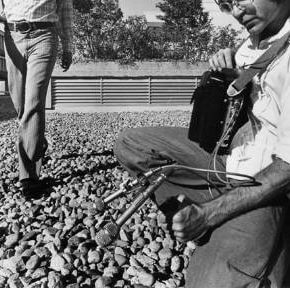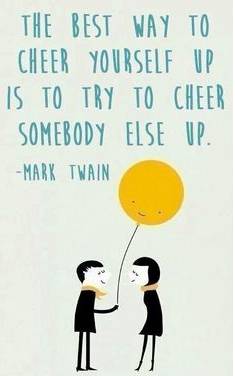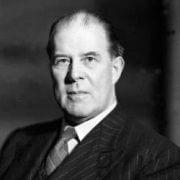Invite an Alien to Live with You Day
Today is Invite an Alien to Live with You Day. Relax! We aren’t talking about the aliens that a certain reality star turned president has said are coming to murder us and steal our jobs — although, once we’re dead, they’d technically just be taking advantage of sudden employment opportunities.

When “Ayy” met “Nanu nanu”
This type of illegal alien comes from the planet Ork. Robin Williams was born on July 21, 1951; he was introduced to us as Mork on February 28, 1978, when his spaceship crashed in Milwaukee, Wisconsin, and he wandered onto the set of Happy Days.
On September 20, 1977, the show aired an episode that would later inspire the term “jump the shark,” which connotes the moment when the quality of a particular program begins to decline. In it, Fonzie dons water skis — still wearing his signature leather jacket, of course — and proves his courage by jumping over a caged shark.
When series creator Garry Marshall announced, less than five months later, that his eight-year-old son had suggested they put a spaceman on the show, everyone involved thought it was a horrible idea. Actors agreed: Dom DeLuise and Roger Rees backed out of playing Mork. Two days before the shoot, a staffer tracked down a comic she’d seen doing an alien bit and brought him in.
As writer Brian Levant told E!, “It is 3:30, we have a run-through of this episode, which is considered to be the biggest piece of s–t in the history of the show, and it was brilliant. The run-through lasted an hour and fifteen minutes of a 22-minute show. And it was Robin Williams’ literal birth as an entertainer.”
Marshall’s spinoff, Mork & Mindy, premiered on September 14, 1978, and ran for four seasons, averaging 55 million to 60 million viewers per week. Viewers were taken in by Williams’ frenetic, madcap style and impish charm. He was a walking verb orbited by exclamation points.
After he committed suicide on August 11, 2014, it was revealed that he’d been suffering from Lewy body dementia, a progressive brain disease that can cause visual hallucinations, memory loss, decreased mental focus, rigid body movements, sleep disorders, anxiety, and depression. Today would have been his 74th birthday.
Perhaps the best way to celebrate today is to acknowledge our sadness and then remind ourselves of the gifts he gave us by watching Mork and Mindy, his comedy specials, or a marathon of our favorites from his movie career. He once said, “The truth is, if anything, I’m probably addicted to laughter.” We certainly got hooked on him.
There are hundreds of quotes by Robin Williams online. Many are scripted lines, which generally shouldn’t count, although Robin often embellished his dialogue. So we’ll say up front that he spoke the following words as Mork from Ork. We don’t know if he ad-libbed any of it, as he was famous for doing, but it sums up what we hope he knew:
“I don’t know how much value I have in this universe, but I do know that I’ve made a few people happier than they would have been without me, and as long as I know that, I’m as rich as I ever need to be.”
We miss you, Robin.



